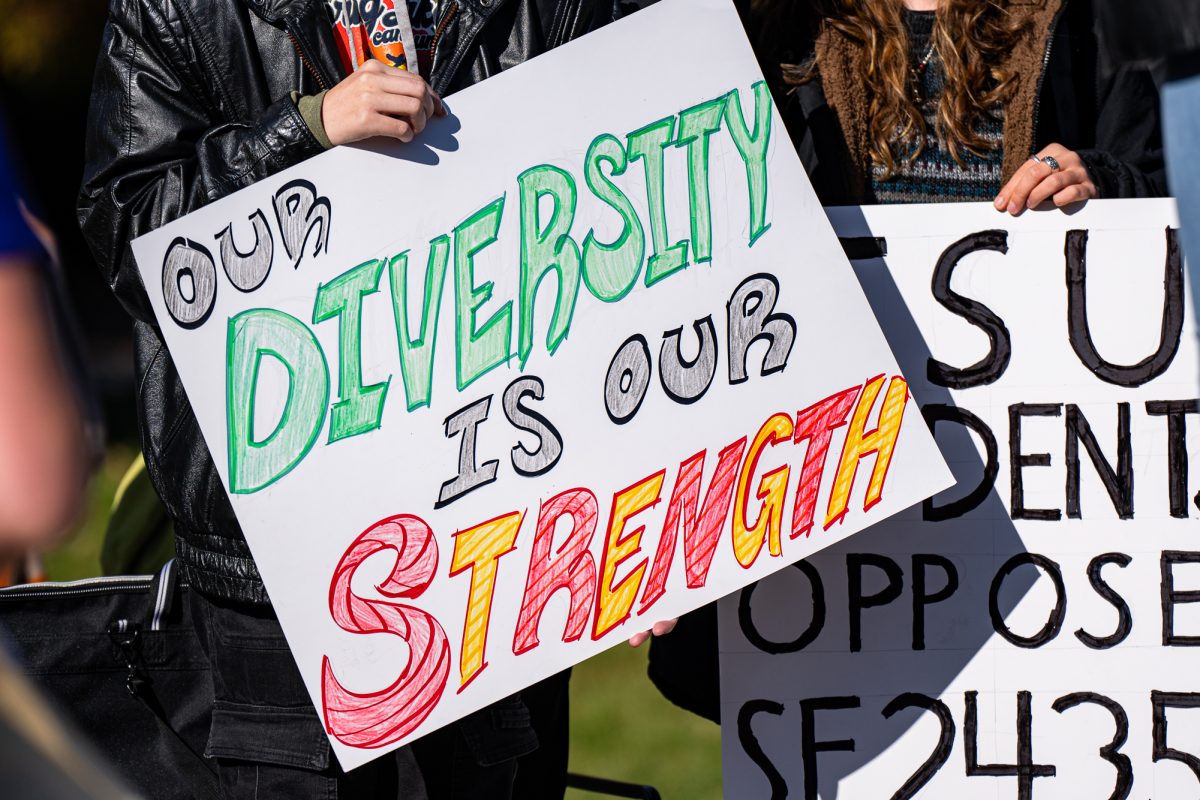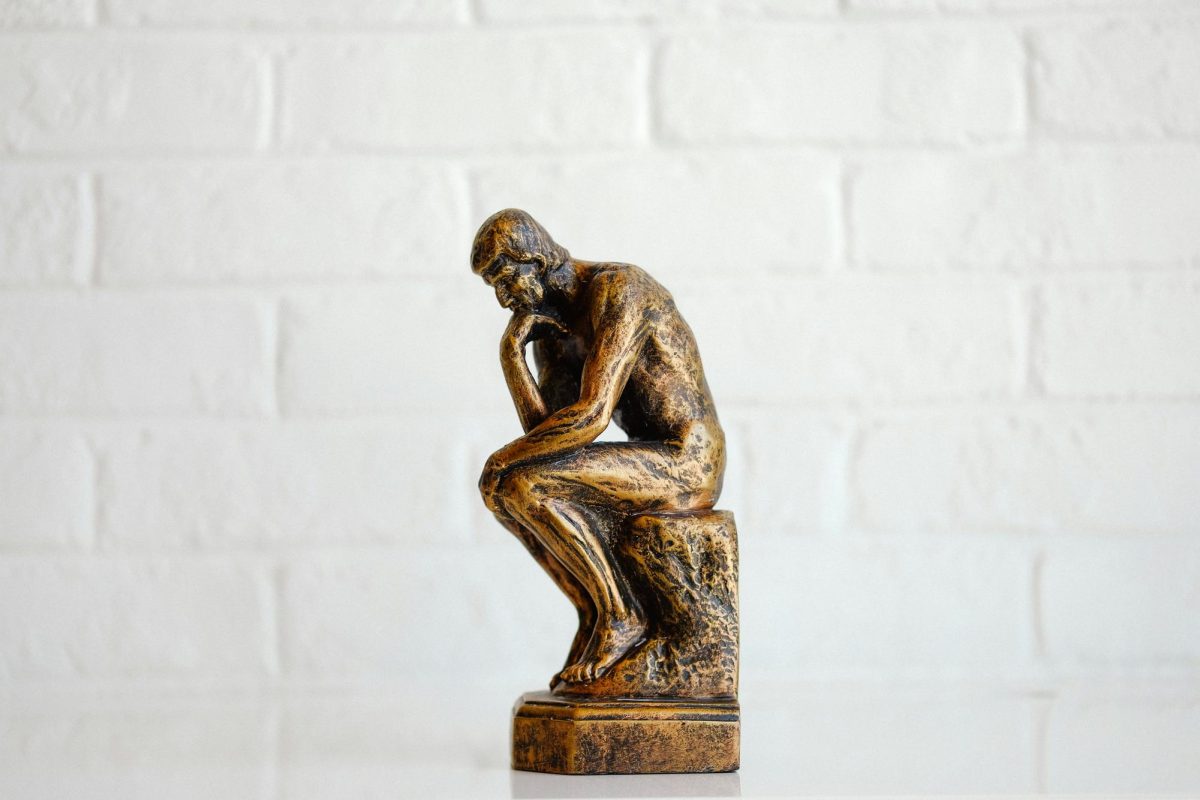Do we hate or love politics? This complicated question results in an equally complicated answer: It depends. The more entrenched in unstable politics we get, the more we all seem to participate. My writing of this column is one such example.
Not only is this idea empirically supported, but it also makes sense conceptually. Jacques Lacan, a French psychoanalyst, provided philosophical context to this idea in his collection of papers and lectures titled “Écrits”, specifically in his lecture “The Mirror Stage as Formative of the I Function as Revealed in Psychoanalytic Experience.”
“The Mirror Stage” is the process by which the subject (this could be thought of as yourself) becomes detached from their whole self (the Freudian Id) and instead develops an “I,” a complex identity that distinguishes the subject from the immediate surroundings (this denies the cogito; rather than taking a holistic view of our being, as Descartes would, Lacan constitutes a difference between the “I” that merely exists and the “I” that consciously thinks and interacts with the world). In the lecture, Lacan mentions a child, who at the infans stage, notices the image of himself in the mirror, and upon this discovery, is then thrown into social Otherness.
In other words, “The Mirror Stage” paves a path for the Freudian Ego to manifest itself as a socially determined “I” that is distinct from the subject’s prior unity. Rather than the infant regarding itself as just made up of its surroundings, it realizes individuality in the world. The infant is not a dog, or a cat or a chair. It is an individual. However, this individual is now forever at odds with the true essence of their experience, that is, existence independent of language or culture (the things that shape our Ego).
Lacan then says in the same lecture, “Thus, the shattering of the Innenwelt to Umwelt circle gives rise to an inexhaustible squaring of the ego’s audits.”
What does he mean to say? The “shattering” of the internal world (you could think of this as experience in its most unfettered form) that existed before “The Mirror Stage” and the exposing of the outside world now creates a basis for the Ego to design itself. According to Lacan, language is the primary way we become separated from our authentic selves. Lacan says that language, even in its most abstract form, does not accurately represent exactly what we want to express. Therefore, our social “I,” directed by the Ego (the person we consciously are), is trapped in an identification with something foreign to our authentic being.
Politics is a subject that drives social discourse and, in many ways, personality. How do Lacan’s ideas explain political behavior and association? The link is closer than it might seem.
In a study by the Pew Research Center, researchers determined that political division in America (between Democrats and Republicans) is “deeper and more extensive – than at any point in the last two decades.” Interestingly, the survey “finds that these divisions are greatest among those who are the most engaged and active in the political process.”
Additionally, these people who see the opposition negatively are “more likely to be regular voters, to make campaign donations, and to participate in the political process in other ways,” according to page 75 of the report.
The study points out how “nearly two-thirds (63%) of consistent conservatives and about half (49%) of consistent liberals say most of their close friends share their political views.”
Lacan’s notion of the “I” fits with this study by way of motivation. Driven by the Ego, a product of the “I” in “The Mirror Stage,” we find that the more repulsed someone is with the opposing side, the more they identify with their ideology. Politics reflects personal morals and values, and no one wants to feel like their ideas are wrong. Hence, politics can end up as extremism.
The more controversial and disruptive, the more gravitating it seems because of the personal threat to the “I.” It is also why Lacan has a strong case for the account of language he advances. Political language entices the Ego and stimulates the mind in ways that a political identity could be completely different from a personal identity. However, it still constitutes engagement. This engagement is staying highly active in politics, a subject that is divisive but attractive to the “I.”
Take Jesse Watters comparing Donald Trump’s recent mugshot to the likes of Martin Luther King, Frank Sinatra and Elvis. Watters claims it is a much more “iconic” mugshot—an odd classification for a man who attempted to overthrow the government and is now facing a litany of charges for that and more.
Watters’ “I” function shows how his identity aims to elevate a particular agenda. Trump’s controversial nature and the counterculture nostalgia associated with mugshots create an odd blend where groupthink takes hold and the “I” becomes further invested in a political ideology rather than with authenticity.
If Watters were to see a mugshot of Hillary Clinton or Hunter Biden, would he be so willing to declare them iconic? Or would he be vilifying them for their illegal actions? I leave this answer to you.
This is not to say the media on the left isn’t just as obsessed with Trump as the right is. However, they invest their energies against him rather than for him. For many of the left (especially the media), Trump occupies just as much headspace as he does for the right. Although many despise him, they elevate him to a standard that verifies their powerful association with the left. The “I” function is just as obsessed but in the opposite direction.
Taking all these things into account, it is more clear why we are so manipulated. There are many structures of belief and knowledge in our society in which we become subjects as soon as we enter them—and politics is a perfect example. In many ways, our core values and beliefs are decided by those around us by the time we are teenagers (although not always).
But what do you think? Do we love or hate politics? I say we love it because we hate it.








